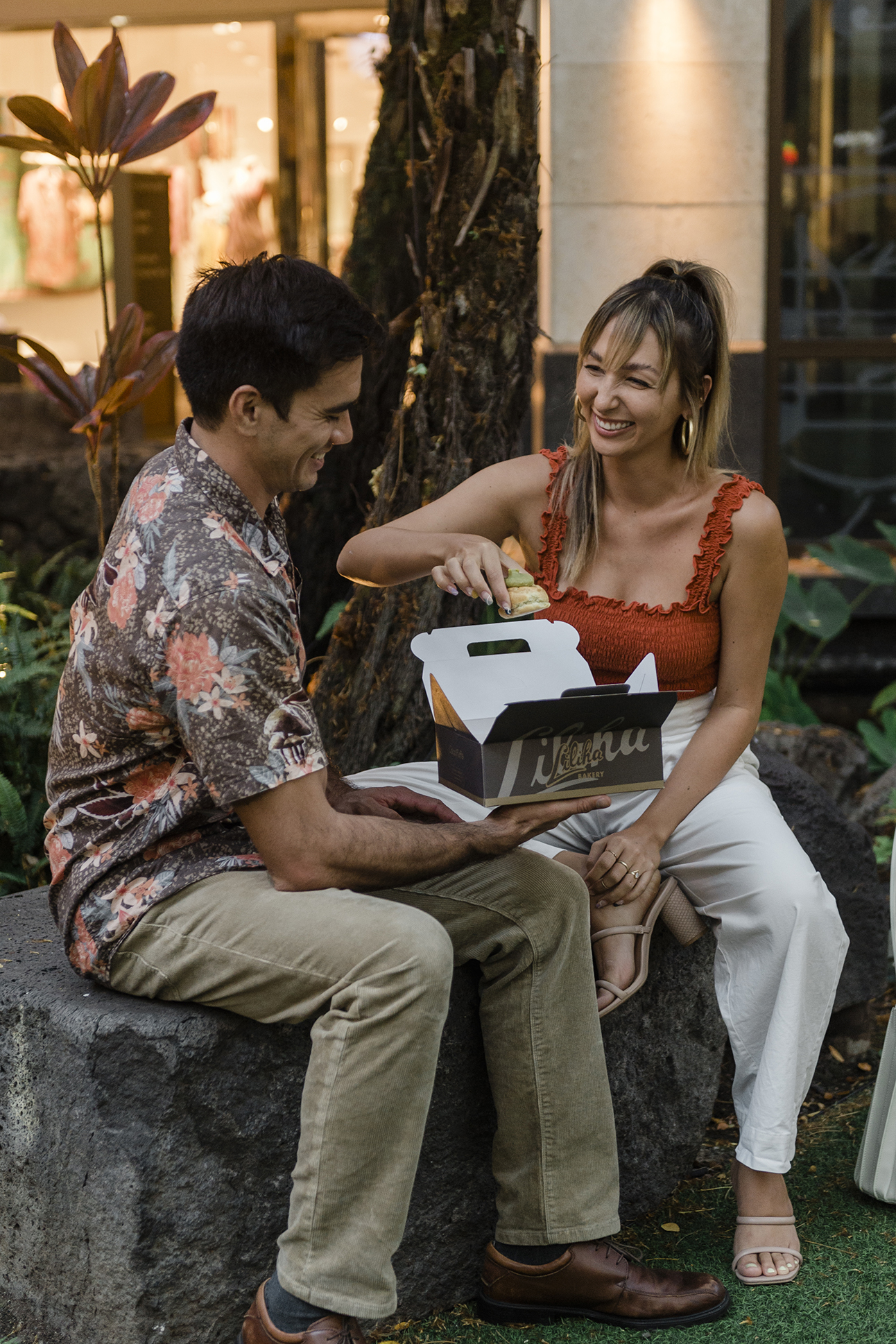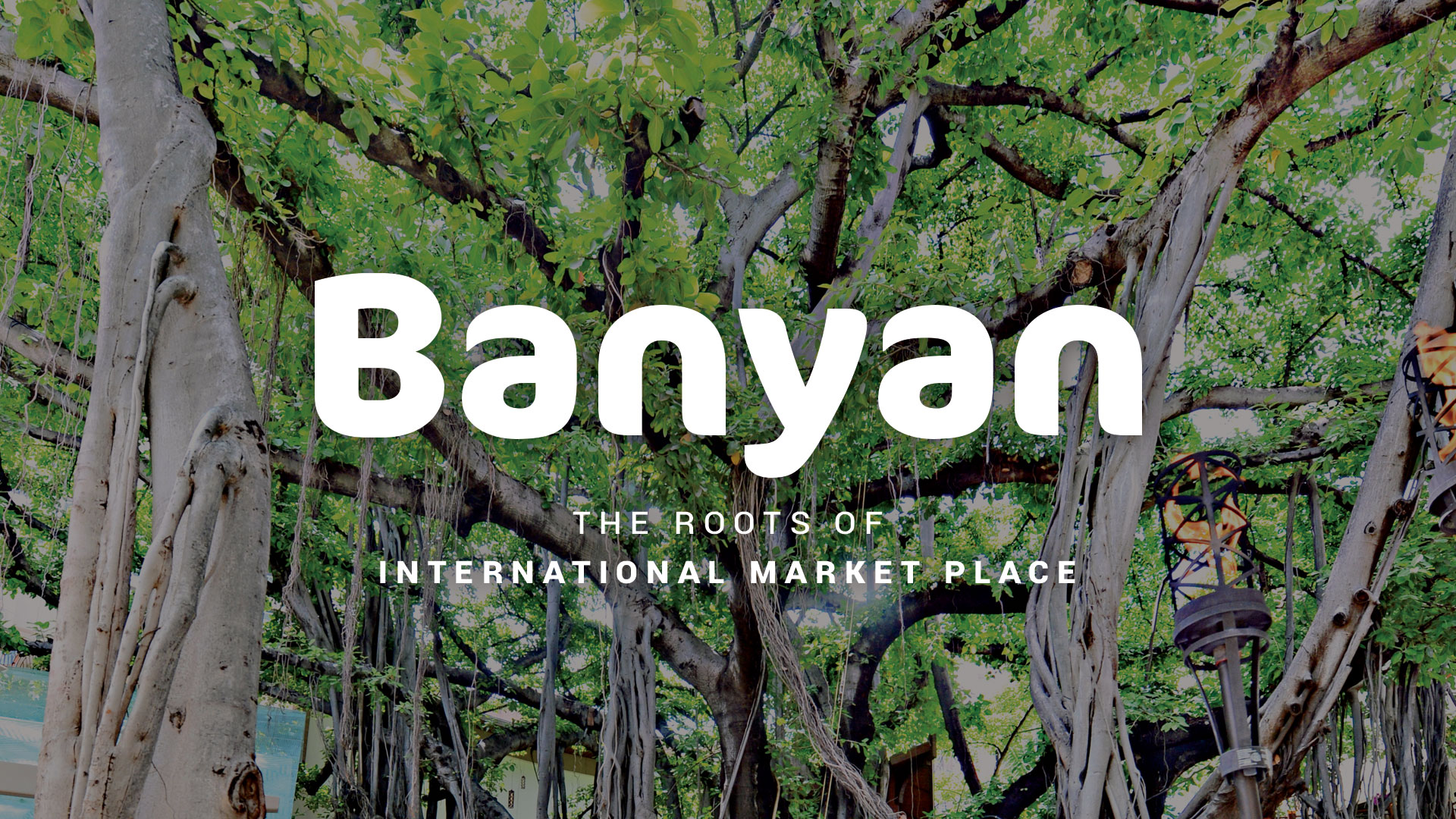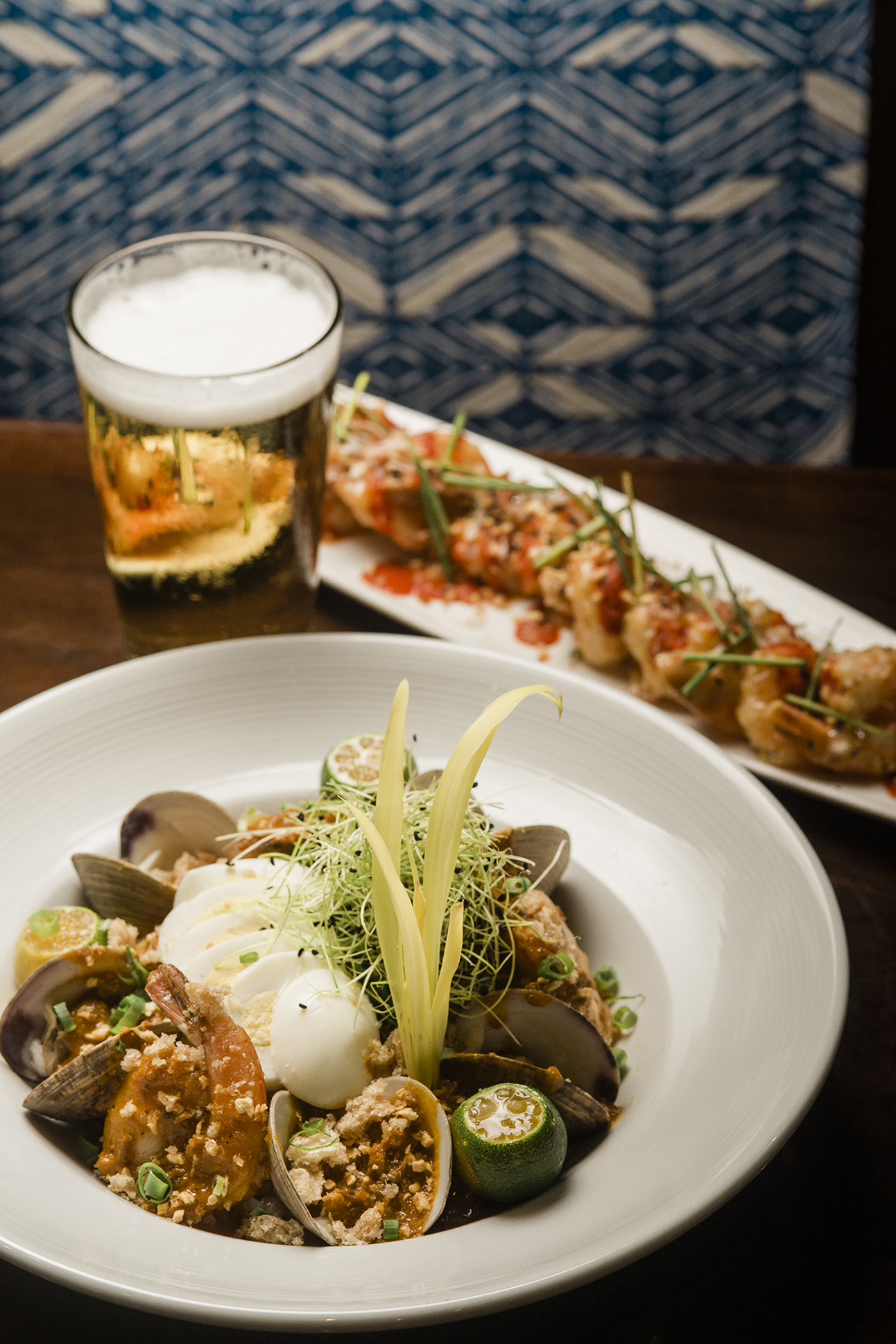
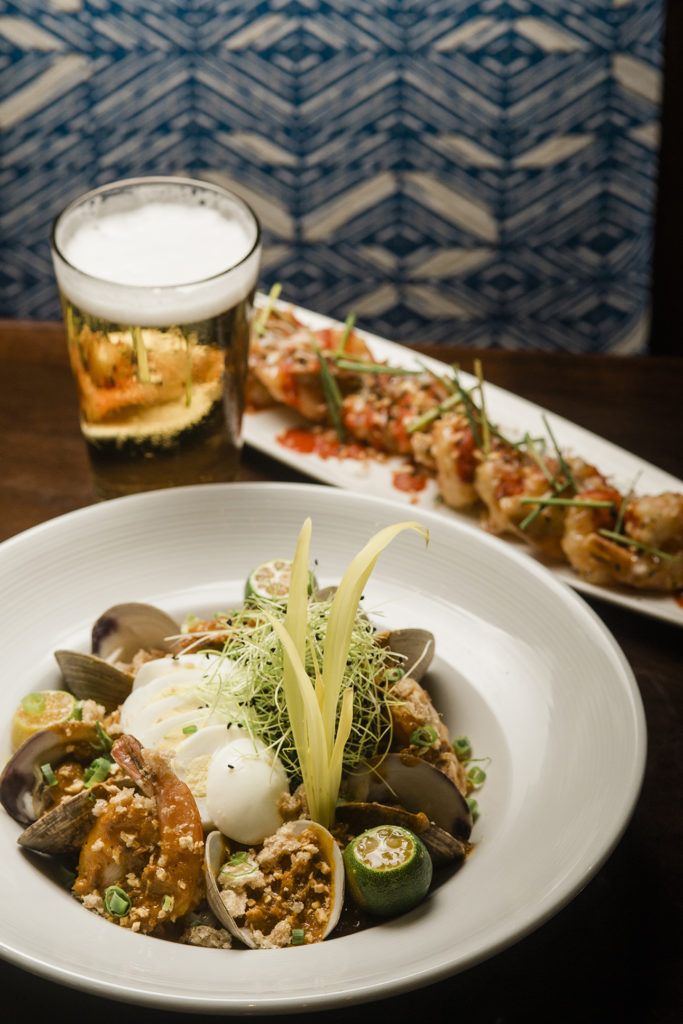
Kanikapila with the Keolanuis
Food, family, and music make Moani Waikiki feel like home.
✏️ JACKIE OSHIRO
📸 JOHN HOOK
ケオラヌイファミリーとカニカピラ
美味しい料理と音楽で家族団欒できるアットホームな雰囲気のモアニ・ワイキキ。
When the Keolanui brothers decided to open a restaurant, they were musicians, not restaurateurs. Though they were used to serving up songs to crowds ravenous for sweet reggae jams, moving to the rhythm of a commercial kitchen was not in their repertoire. What they did know, however, was that like every song, every restaurant begins with a stroke of inspiration.
Caleb and Micah G. have stewed on the idea for Moani for years. The brothers grew up in a large, musical family whose warm, lively parties were famous throughout the East Honolulu neighborhoods of Hawai‘i Kai and Kuli‘ou‘ou.
“If you’re from [the area], you’ve probably been to a Keolanui family function in some way,” explains general manager Ikaika Sczymanski. “Tutu’s garage was kind of like the gathering place. That’s where everybody came to enjoy food and drinks. And being a family of musicians, there was always music happening too—someone busted an ukulele out or a guitar, and people would sing, and laugh, and have a good time.”
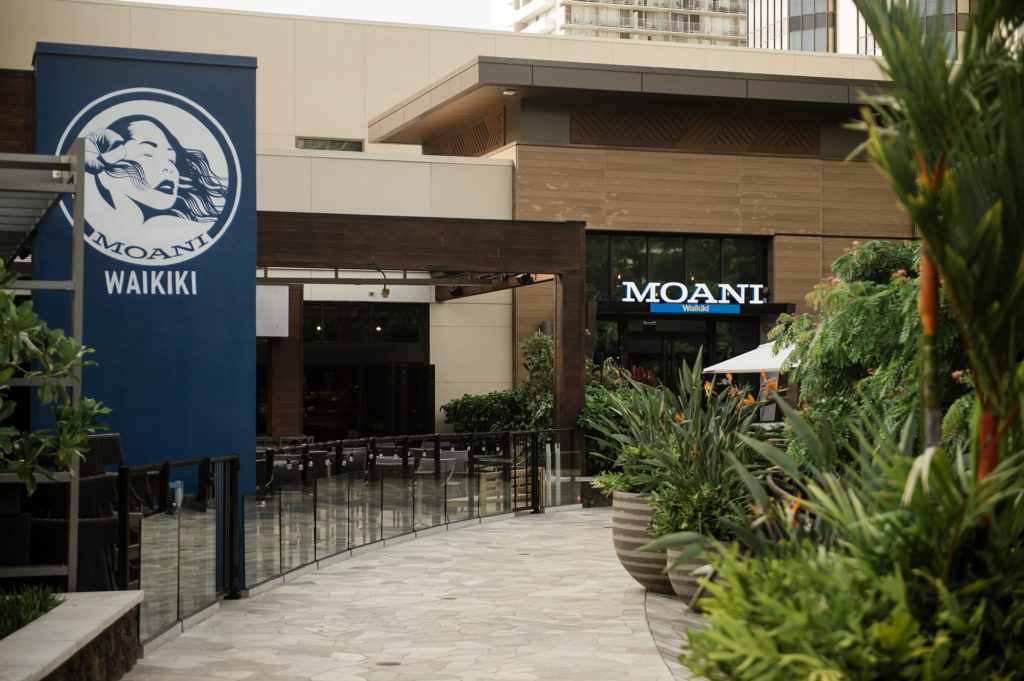
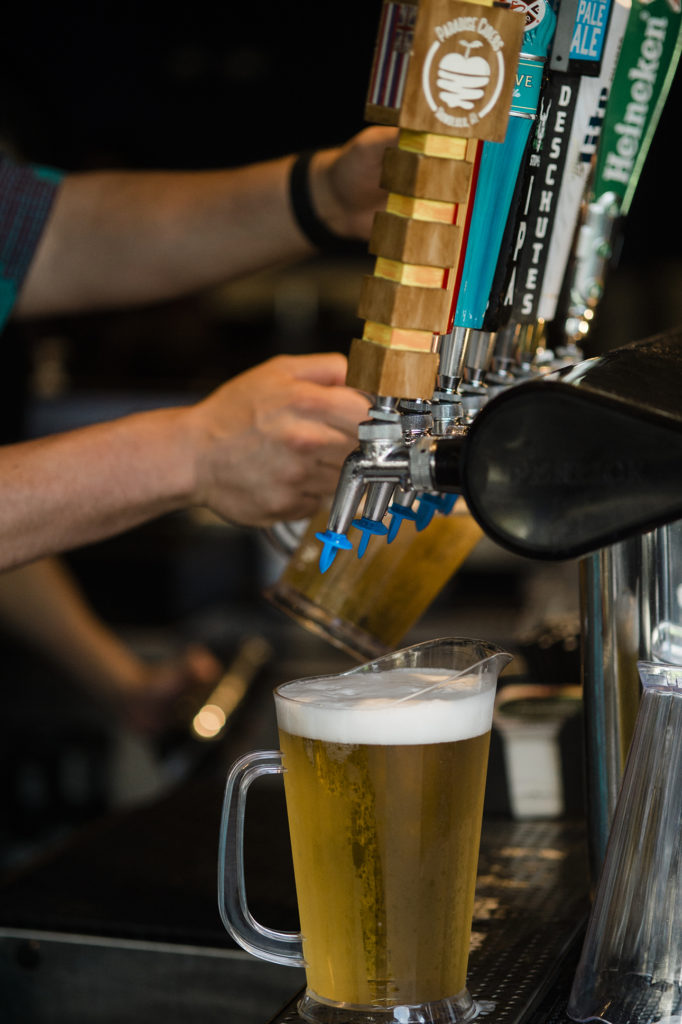
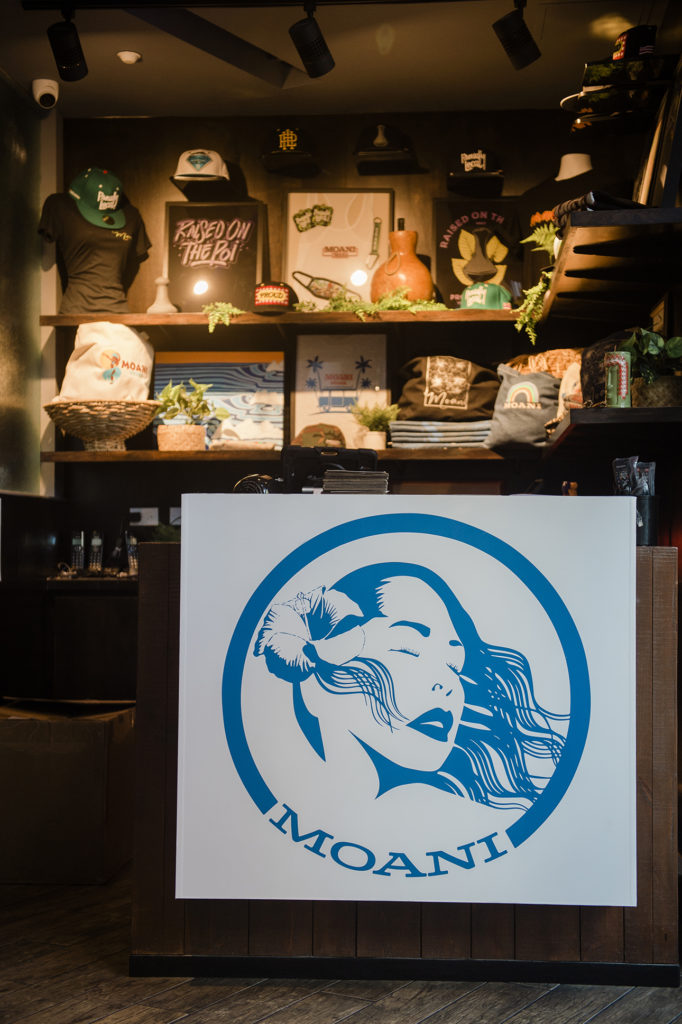
Recognizing how special their upbringing was, the brothers wanted a way to share the vibrant atmosphere of a Keolanui kanikapila with the world. In 2019, Moani Island Bistro & Bar opened in Kapolei, featuring a lineup of Keolanui family favorite dishes adapted by veteran chef Michael Leslie. With daily live music, comfort foods served family style, and ample aloha, Moani quickly became a local favorite.
So when the opportunity arose for Moani to expand into Waikīkī, the decision was a no-brainer. The Keolanuis were determined to bring the joy of food, family, and music to a larger audience—and prove Moani was more than a one-hit-wonder.
Although Moani Waikiki’s demographic isn’t as locally-focused as the Kapolei location, attracting a mix of residents and visitors, the restaurant continues to remain true to the Keolanuis’ mission of standing proud in what it means to be local.
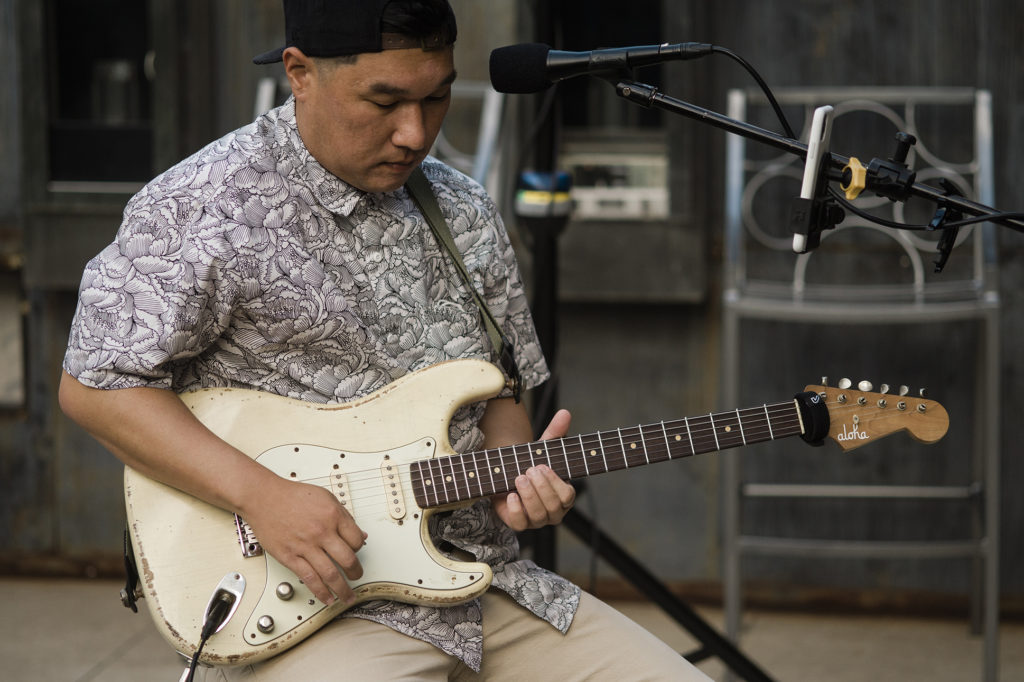
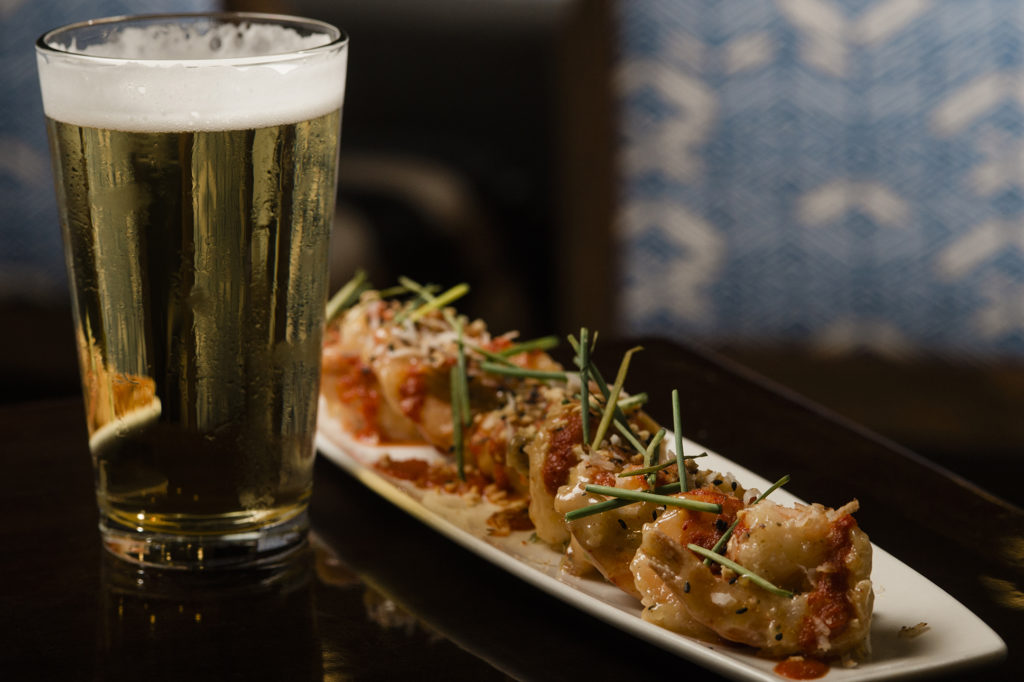
This local pride is seen in all the usual ways: locally-sourced ingredients, local talent on stage, and even locally-designed upholstery. Much like their Kapolei location, Moani Waikiki feels as if you’ve been invited into their family home.
For visitors and locals alike, Waikīkī can sometimes feel like a performance of Hawaiʻi, catering to the stereotypes of what the islands are imagined to be rather than what they actually are. Even many of the restaurants and attractions that claim to sell an authentic experience of local culture do so with visitor tastes and preferences in mind. But among the kitschy tiki bars and tourist traps, Moani Waikiki stands apart.
“We want to provide a place where local people can come to Waikīkī and feel like they belong. [The restaurant] is geared towards locals. We want to show our visitors—this is the food that we enjoy, we made it for our tastes, and we want to share it with you,” says Sczymanski, explaining that capturing the atmosphere of a Keolanui family party means ensuring that both the food and music are local-first.
“Our music is local music. It’s not just Hawaiian music. [The bands] can play R&B, blues, country, reggae,” he says. “We’re just trying to be us and share that without trying to angle it towards anybody else. We’re trying to show what we love and what we do—and invite people to be a part of that.”





